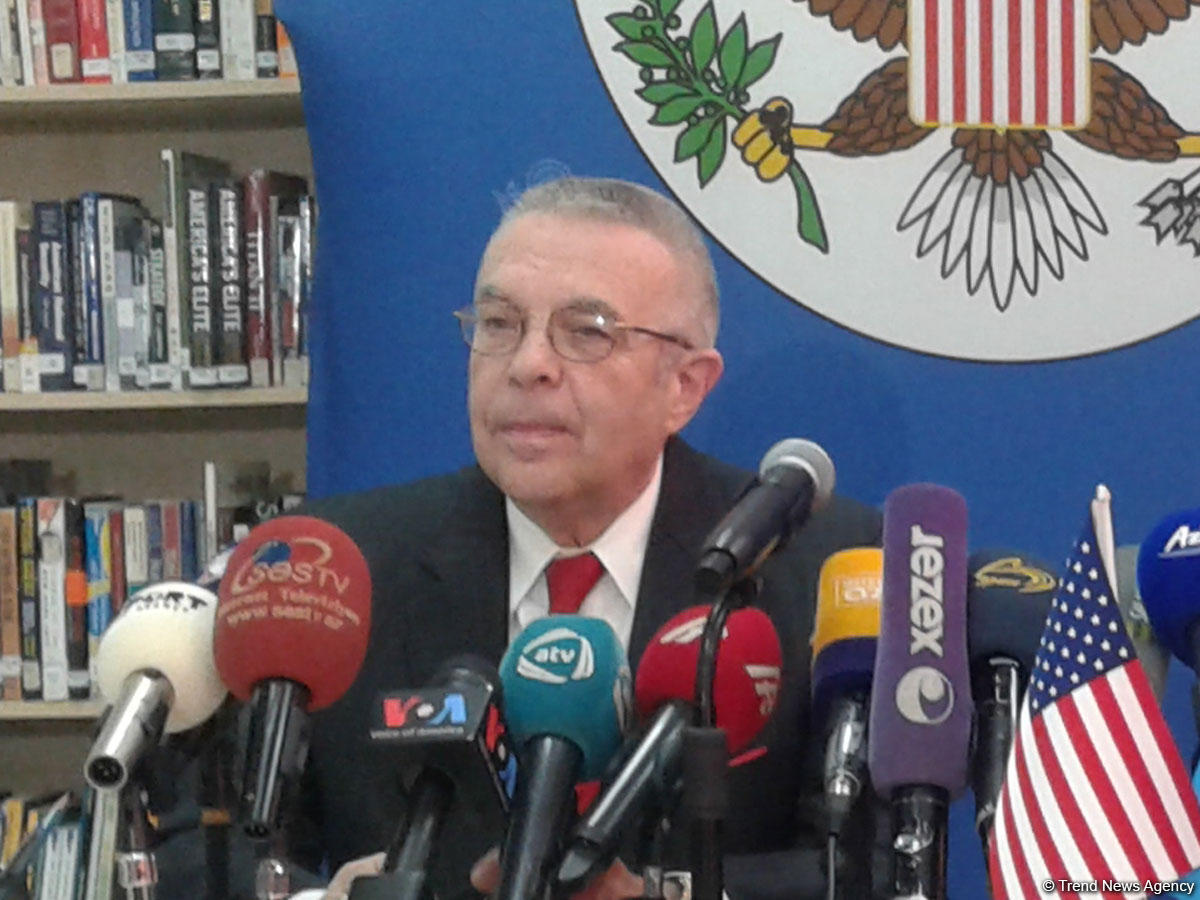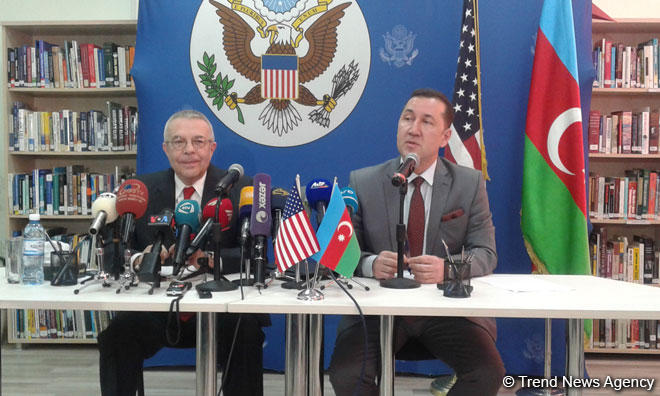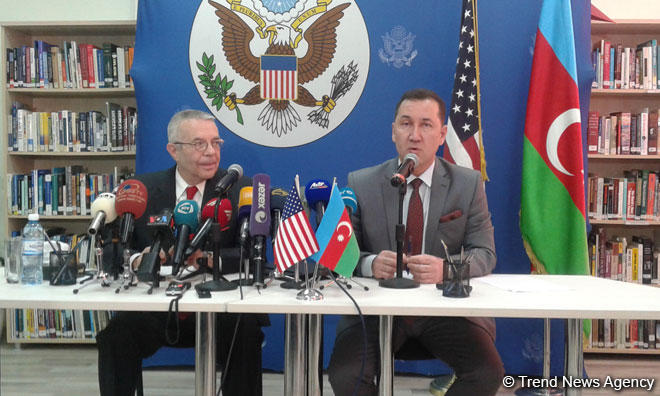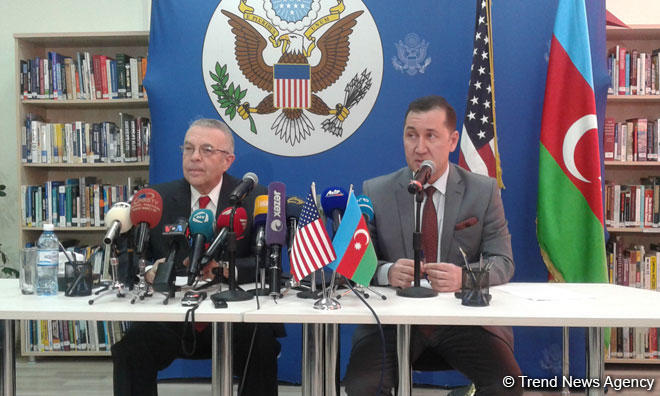Baku, Azerbaijan, Mar. 11
By Anakhanum Hidayatova – Trend:
There is no military solution to the Nagorno-Karabakh conflict, Richard Hoagland, the US co-chair of the OSCE Minsk Group, said at a press conference in Baku Mar. 11.
He added that the OSCE Minsk Group co-chairs will deliver exactly the same message next week in Yerevan.
“We, the three OSCE Minsk Group co-chairs, had long and substantive discussions with Azerbaijani President Ilham Aliyev this morning,” Hoagland said. “We also appreciate the hospitality of Azerbaijani Foreign Minister Elmar Mammadyarov, with whom we also had long discussions over lunch.”
He added that the OSCE Minsk Group co-chairs underlined the necessity of backing negotiations on the Nagorno-Karabakh conflict’s settlement.
“We said the April 1, 2016 anniversary should be marked at the negotiations table,” Hoagland noted.
On the night of April 2, 2016, all the frontier positions of Azerbaijan were subjected to heavy fire from the Armenian side, which used large-caliber weapons, mortars and grenade launchers. The armed clashes resulted in deaths and injuries among the Azerbaijani population. Azerbaijan responded with a counter-attack, which led to liberation of several strategic heights and settlements.
Military operations were stopped on the line of contact between Azerbaijani and Armenian armies on Apr. 5 at 12:00 (UTC/GMT + 4 hours) with the consent of the sides, Azerbaijan's Defense Ministry had said. Ignoring the agreement, the Armenian side again started violating the ceasefire.
Hoagland also said there are no dates for the next presidential meeting on the settlement of the Nagorno-Karabakh conflict.
Twenty-five years of negotiations over the conflict’s peaceful settlement have brought no results, he said.
But there is diplomatic activity going on for 25 years, Hoagland said, adding this activity prevented the conflict from entering a war phase.
“Diplomacy is trying to create conditions so that people on the top level find the right solutions,” he said, adding that the OSCE Minsk Group co-chairs are intensifying their activity.
Historically there were times when the US took the lead over the process on the Nagorno-Karabakh conflict’s settlement, and there were times when France took the leadership, and now Russia is involved actively, he added.
Hoagland noted that he believes in the strength of diplomacy.
The conflict between the two South Caucasus countries began in 1988 when Armenia made territorial claims against Azerbaijan. As a result of the ensuing war, in 1992 Armenian armed forces occupied 20 percent of Azerbaijan, including the Nagorno-Karabakh region and seven surrounding districts.
The 1994 ceasefire agreement was followed by peace negotiations. Armenia has not yet implemented four UN Security Council resolutions on withdrawal of its armed forces from the Nagorno-Karabakh and the surrounding districts.
---
Follow the author on Twitter: @Anahanum












